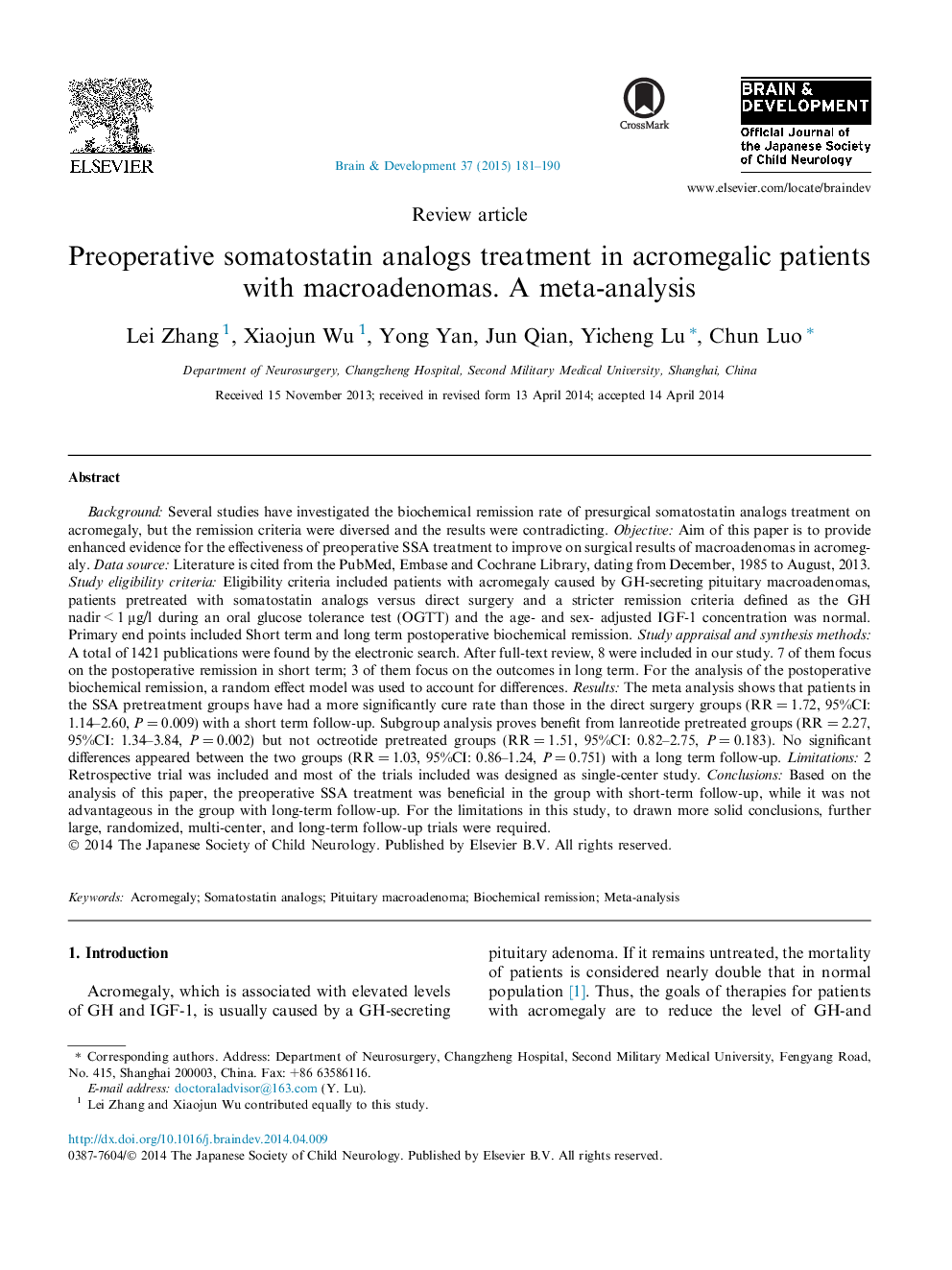| Article ID | Journal | Published Year | Pages | File Type |
|---|---|---|---|---|
| 3036801 | Brain and Development | 2015 | 10 Pages |
Background: Several studies have investigated the biochemical remission rate of presurgical somatostatin analogs treatment on acromegaly, but the remission criteria were diversed and the results were contradicting. Objective: Aim of this paper is to provide enhanced evidence for the effectiveness of preoperative SSA treatment to improve on surgical results of macroadenomas in acromegaly. Data source: Literature is cited from the PubMed, Embase and Cochrane Library, dating from December, 1985 to August, 2013. Study eligibility criteria: Eligibility criteria included patients with acromegaly caused by GH-secreting pituitary macroadenomas, patients pretreated with somatostatin analogs versus direct surgery and a stricter remission criteria defined as the GH nadir < 1 μg/l during an oral glucose tolerance test (OGTT) and the age- and sex- adjusted IGF-1 concentration was normal. Primary end points included Short term and long term postoperative biochemical remission. Study appraisal and synthesis methods: A total of 1421 publications were found by the electronic search. After full-text review, 8 were included in our study. 7 of them focus on the postoperative remission in short term; 3 of them focus on the outcomes in long term. For the analysis of the postoperative biochemical remission, a random effect model was used to account for differences. Results: The meta analysis shows that patients in the SSA pretreatment groups have had a more significantly cure rate than those in the direct surgery groups (RR = 1.72, 95%CI: 1.14–2.60, P = 0.009) with a short term follow-up. Subgroup analysis proves benefit from lanreotide pretreated groups (RR = 2.27, 95%CI: 1.34–3.84, P = 0.002) but not octreotide pretreated groups (RR = 1.51, 95%CI: 0.82–2.75, P = 0.183). No significant differences appeared between the two groups (RR = 1.03, 95%CI: 0.86–1.24, P = 0.751) with a long term follow-up. Limitations: 2 Retrospective trial was included and most of the trials included was designed as single-center study. Conclusions: Based on the analysis of this paper, the preoperative SSA treatment was beneficial in the group with short-term follow-up, while it was not advantageous in the group with long-term follow-up. For the limitations in this study, to drawn more solid conclusions, further large, randomized, multi-center, and long-term follow-up trials were required.
